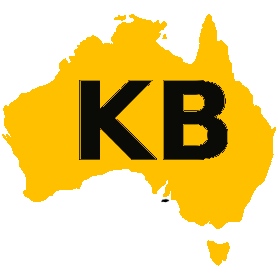by Wayne Eddy
Councils and Council staff collaborate all the time.
They collaborate:
- amongst themselves;
- with other levels of government;
- with their communities;
- with the private sector and NGOs.
Literally hundreds of annual conferences, special interest groups, online forums and mailing lists have been set up by and for the use local government staff, and hundreds more regularly discuss local government related issues and have local government members and contributors.
At any one time hundreds of Council staff are likely to be participating in dozens of collaborative projects, looking at a wide range of issues and challenges.
And at any one time thousands of individual Council staff are doing their best to work with their peers at other Councils to try to solve common problems and challenges.
Despite all this it feels as though (at least to me) that we aren't generating as much benefit from all this collaborative effort as we could be, and I suspect this is because our current efforts at collaboration are mostly either:
- Ad hoc
- Siloed
- Hidden
Ad Hoc Collaboration
Wikipedia notes that in English, the term 'ad hoc' generally signifies "a solution designed for a specific problem or task, non-generalizable, and not intended to be able to be adapted to other purposes." This perfectly describes a lot of the collaboration that goes on between Councils. When we do collaborate, it tends to be to on a very specific problem, and ensuring that the product of the collaboration can be reused and adapted by others is not a major consideration.
Siloed Collaboration
Silos are everywhere in local government. Collaboration is supposed to be a way of breaking down these silos. The irony is we collaborate in silos too. The silos can be geographical or vocational or temporal and a lot of others 'al's as well.
I regularly attend the Northern Councils Asset Management Forum. It's a three monthly meeting of asset management staff from about a dozen Councils located in Melbourne's northern suburbs. It is a great initative. We share information, and discuss issues that affect us all. It is collaboration, but it's siloed collaboration. It's geographically siloed, as only a dozen or so Councils in the north of Melbourne are part of it. It is vocationally siloed in that mostly only asset management staff attend. It is temporally siloed in that we mostly only collaborate for the duration of the meetings. Sometimes siloed collaboration is enough, but often it's not. Often an insight from someone from somewhere else, or with a different skill set or a different lived experience is exactly what's needed to solve a problem, and that's where siloed collaboration falls down.
Hidden Collaboration
A lot of the time only the people involved in particular collaborative project know about it. It is likely that other people in other locations could both contribute to and benefit from being part of the project, but because they don't know about the project that aren't able to be part of it.
Making Collaboration Systematic, Open & Discoverable
If 'ad hoc, siloed and hidden' is where we are, 'systematic, open & discoverable' is what we should be aiming for with respect to collaboration.
But how do we change the way we collaborate?
I've believed for a long while that publishing local government related knowledge online under a creative commons licence is an important 'enabler' with respect to inter-council collaboration, and I'd like to talk more about that another time, but for now I'd like to put forward the case for compiling four simple lists.
- a list of challenges facing local government and local government staff;
- a list of local government people with an interest and expertise in various areas and a willingness to share their expertise and ideas with their peers;
- a list of existing resources that can potentially help local government staff to overcome the challenges they face;
- a list of existing and planned projects that aim to resolve local government related issues and who to contact to be part of the project.
Challenges
If we know which Councils are facing which challenges we know where to look for collaborators. If fifty Councils are facing a similar challenge, surely there is a lot to be said for all fifty Councils working together to overcome the challenge? A list of challenges will make that possible.
Resources
Sometimes a solution to a challenge has already been nailed, and it is just about finding that solution. Sometimes asking around will uncover the solution, and sometimes an internet search will do the trick, but not always. A comprehensive list of resources for local government people compiled by local government people should make finding a solution to a challenge much easier.
Interests and Expertise
A list of people's interests and expertise helps overcome the limitations of 'siloed collaboration'. You can build working groups that have the right people for the task, and not be limited by location or vocation or other types of silos.
Projects
A list of current and proposed projects will both help prevent hidden collaboration and duplication of effort. If someone is already working solving a problem, why not help them out instead of starting over again from scratch? A list of projects will make that possible.
How To Help
If you can see the value in the above, and you want to help compile one or more of the above lists, please take 5 minutes to fill out this survey.
